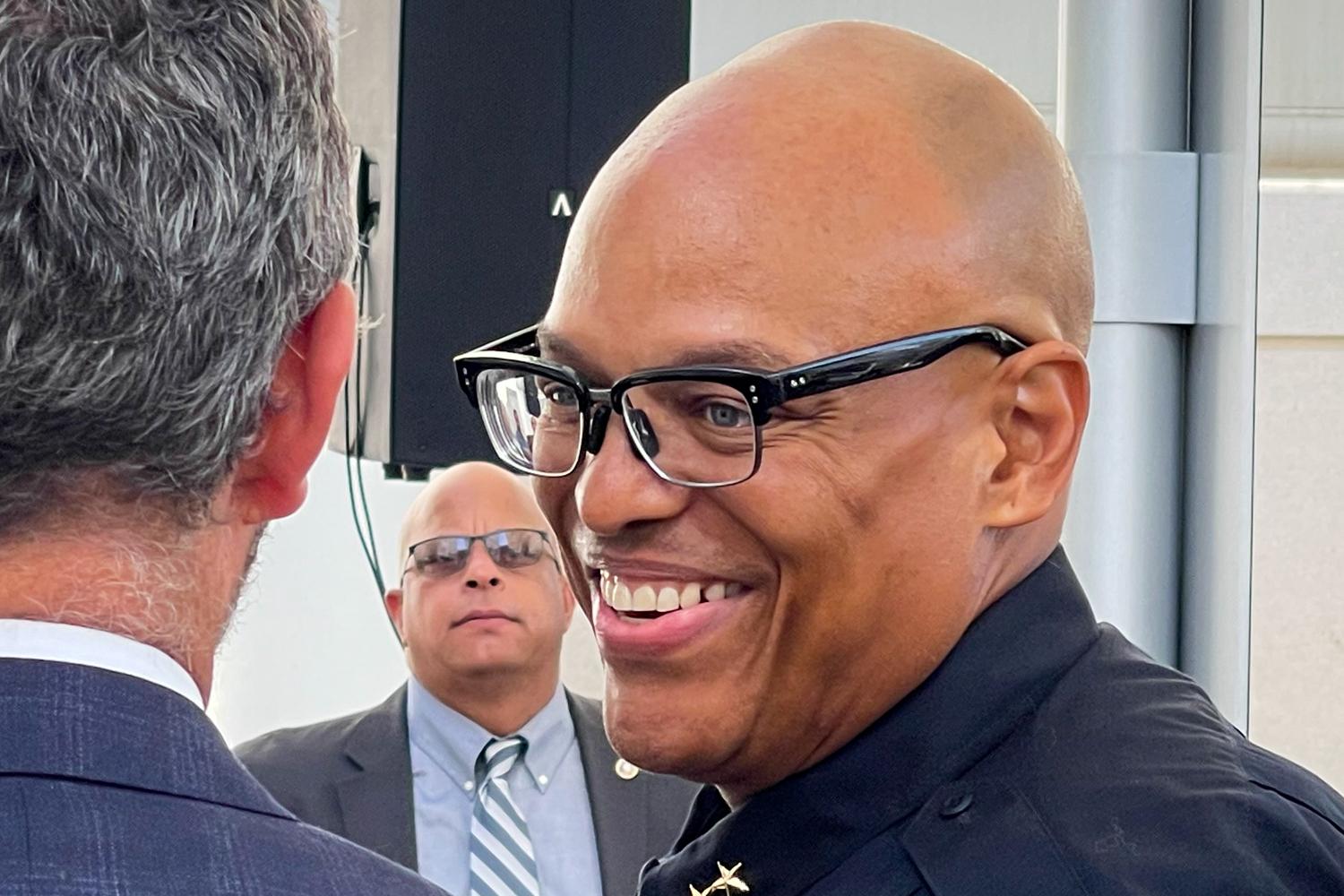Back in March, RTD's Chief of Police and Emergency Management, Robert Grado, retired as head of the district's small police force. On Tuesday, RTD announced Dr. Joel Fitzgerald Sr., who has three decades of law-enforcement work under his belt and has served as police chief in four cities, would be taking the role.
Fitzgerald will be sworn in Tuesday morning at Union Station.
"I am a person of integrity, and I care about the people we serve," Fitzgerald said in a statement. "I set expectations high for interactions with people. It is important to be someone who beats crime and builds legitimacy and trust in the community."
Born in Philadelphia, Fitzgerald got his start in law enforcement at his hometown's police department. He's served as chief of police in Missouri City, Texas; Allentown, Pennsylvania; Fort Worth, Texas; and Waterloo, Iowa.
Fort Worth City Manager David Cooke fired Fitzgerald from the police force, after a confrontation between Fitzgerald and a state union leader at an award ceremony, reported the Dallas Morning News. Fitzgerald had been kicked out of the Combined Law Enforcement Associations of Texas when leadership realized he had joined without being a member of a local union.
The city claimed he was fired after officials decided he was failing as a leader. Months after the firing, he told a judge his termination had cost him his career in law enforcement, reported ABC 8. He described it as a "death sentence."
In a legal battle over his termination, Fitzgerald told a court the reason he was fired was that he was blowing the whistle to the FBI on city employees improperly using a federal criminal database. The case is ongoing, and he declined to comment on it on Tuesday, saying, "All I can say is that it's progressing through court."
Eventually, he was hired by Waterloo Police Department. There, Fitzgerald faced scrutiny from some officers and others when he attempted to reform the agency, reported CBS Dallas Fort Worth.
Among the changes: Getting rid of an insignia that looked like a Ku Klux Klan dragon, "banning chokeholds, outlawing racial profiling, requiring officers to intervene if they see excessive force, and investigating all complaints of misconduct." Former department chiefs published a letter claiming department morale had plummeted under his leadership. He attributed the criticisms of his work to racism.
Fitzgerald resigned from that position, to move to Denver, last week.
This will be his first time at the helm of a transit system's police force. The chief is in charge of customer safety and security and manages the district's police force across the eight counties and 40 cities where RTD runs transit, according to the department.
Fitzgerald described himself as a believer in "firm compassion," according to RTD.
Fitzgerald has his work cut out for him, both improving safety on transit lines and at stations and improving the district's public image.
In the first half of 2022, more than 1,000 people were arrested in and around Union Station's bus terminal, most for drug crimes. Since then, Deputy Chief Steve Martingano, a figure well-liked by neighbors in the Union Station neighborhood, has served as deputy chief.
For years, the district addressed crime on trains and busses through a contract with Allied Security. That company came under scrutiny after a guard beat Denver artist Raverro Stinnet as fellow guards watched.
The department, in coordination with the City of Denver and the Denver Police Department, has created a large-scale police response, including giving transit police the ability to arrest people at the bus terminal instead of waiting for Denver Police to arrive and many environmental changes.
Jerry Orten, head of the Lower Downtown Neighborhood Association, recently told Denverite he was pleased with the reduction in crime in the neighborhood, though there is still plenty to do.
Fitzgerald wants to increase RTD police visibility throughout the transit system, hire vacant positions, grow the department and ensure it is accredited. He prides himself on his ability to recruit.
Debra Johnson, RTD's CEO, said Fitzgerald is known for his evidence-based approach for addressing crime.
"Joel is a courageous leader," Johnson said in the statement. "He builds coalitions, he is focused on strategic planning and he has expanded community policing everywhere he has served - all elements that are important to RTD. He is committed to the betterment of the community in his approach."
As he faces challenges like increased homelessness and also drug use in RTD facilities, he plans to approach people with compassion and firmness. For drug users, that means arrest.
"People that use drugs, you know, are breaking the law, in some respect," he said. "People that do so in a manner that jeopardizes others' safety, like leaving syringes on a seat on a train or bus, you know, that's unlawful. We can't have activities like that.
"I'm not going to criminalize or over-criminalize people that are mentally ill or drug addicts," he continued. "But we have laws in place for a reason. And the riders need to feel safe and secure. We will direct people that are not housed to services that they need. And we'll continue our homeless outreach. But, with that being said, we are going to enforce the laws on the books here in the state of Colorado, and make sure that the average passenger feels safe. I think that's the least that we can do. That's our purpose. There's going to be a renewed sense of safety and security on RTD."
Update: This story has been updated with additional information about Fitzgerald's past and his vision for the future.
CPR's Nathaniel Minor contributed additional reporting for this story.













